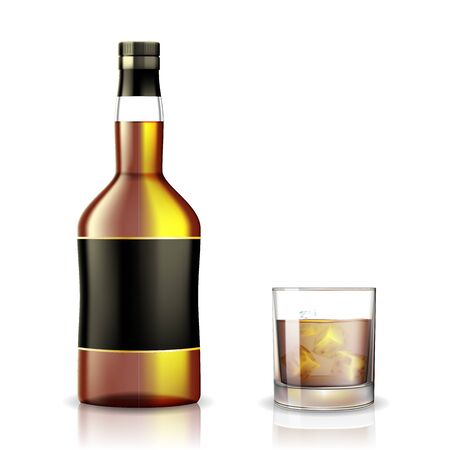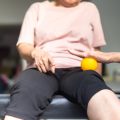Understanding Bone Healing in the UK Context
Bone healing is a complex process that occurs naturally when a fracture or injury takes place. In the United Kingdom, understanding how bones repair themselves is especially important due to local lifestyle habits and cultural factors. Typically, bone healing involves several stages: inflammation, bone production, and bone remodelling. Each stage requires time, proper nutrition, and healthy habits to ensure optimal recovery. For British patients, it’s crucial to consider how everyday choices—such as alcohol consumption and caffeine intake—might influence this process. The typical British diet and social customs, including regular tea breaks and pub visits, can have unique impacts on bone health. By recognising these influences, individuals can make informed decisions that support strong and effective bone recovery.
Alcohol Consumption: Effects on Bone Recovery
When recovering from a bone fracture or surgery, it is important to consider how lifestyle choices such as alcohol consumption may influence the healing process. In the UK, enjoying a pint at the pub or a glass of wine with dinner is part of everyday life for many adults. However, research suggests that alcohol can negatively affect bone healing by interfering with new bone formation and slowing down recovery. Excessive alcohol intake has been linked to reduced bone density and a higher risk of complications during rehabilitation.
The NHS recommends that adults should not regularly drink more than 14 units of alcohol per week, spread evenly over three or more days. For reference, this is equivalent to about six pints of average-strength beer or ten small glasses of low-strength wine. The table below provides an easy guide to understanding what constitutes one unit of alcohol in common British drinks:
| Drink Type | Typical Serving Size | Units of Alcohol |
|---|---|---|
| Pint of Beer/Lager/Cider (4%) | 568 ml (1 pint) | 2.3 units |
| Small Glass of Wine (12%) | 125 ml | 1.5 units |
| Single Measure of Spirits (40%) | 25 ml | 1 unit |
| Bottle of Alcopop (5%) | 275 ml | 1.4 units |
If you are recovering from a broken bone or orthopaedic procedure, it is advisable to limit your alcohol intake as much as possible. Even moderate drinking may slow your recovery, while heavy drinking can significantly compromise bone strength and healing capacity. If you have questions about how much is safe for you during your recovery period, please consult your GP or specialist nurse for personalised advice aligned with current UK guidelines.
![]()
3. Caffeine and Bone Health: What British Patients Should Know
Caffeine is a familiar part of daily life in the UK, with tea, coffee, and energy drinks being popular choices for many. But how does caffeine consumption affect bone recovery? For British patients recovering from fractures or orthopaedic procedures, understanding this relationship is important for optimal healing. Research suggests that high levels of caffeine may interfere with calcium absorption, a mineral essential for bone strength and repair. While moderate caffeine intake – such as one to two cups of tea or coffee per day – is generally considered safe, excessive amounts could potentially slow down bone healing. In the UK, where “a cuppa” is often a comforting routine, it’s helpful to be mindful of total daily caffeine intake, especially when also consuming energy drinks or multiple cups throughout the day. Patients should consider limiting their caffeine consumption during recovery and ensure they are maintaining adequate calcium and vitamin D intake through diet or supplements if recommended by their healthcare provider. Discussing your typical caffeine habits with your GP or specialist can help you receive tailored advice to support your bone health during recovery.
4. Practical Tips: Moderating Alcohol and Caffeine During Recovery
For British patients recovering from bone injuries, making mindful choices about alcohol and caffeine can play a significant role in supporting your body’s natural healing process. Here are some practical, actionable tips designed to fit seamlessly into UK lifestyles—whether you’re enjoying a pint at your local pub, sipping tea at a café, or relaxing at home.
Alcohol Moderation: Navigating Social Settings
In the UK, social gatherings often revolve around pubs and drinks. While it’s not necessary to avoid alcohol entirely, moderation is key. Aim to stay within the NHS guidelines of no more than 14 units per week, spread evenly over several days. If you are unsure what counts as a unit, refer to the table below:
| Drink | Typical Serving Size | Units of Alcohol |
|---|---|---|
| Pint of Beer/Lager/Cider (4%) | 568ml (1 pint) | 2.3 units |
| Standard Glass of Wine (12%) | 175ml | 2.1 units |
| Single Measure of Spirits (40%) | 25ml | 1 unit |
Tips for the Pub:
- Alternate alcoholic drinks with soft options like sparkling water or non-alcoholic beers.
- Choose lower-alcohol alternatives or smaller measures.
- If friends offer you another round, politely decline or suggest a hot drink instead.
- If you do drink, have food alongside—this slows absorption and reduces bone health impact.
Caffeine Control: Making Smart Choices in Cafés and at Home
Caffeine is found in tea, coffee, energy drinks, and even some chocolate bars. To support bone recovery, limit your daily intake to no more than 400mg (about four cups of brewed coffee or six cups of tea). Here’s a quick guide for common British favourites:
| Beverage/Food | Typical Serving Size | Caffeine Content (mg) |
|---|---|---|
| Cup of Black Tea | 240ml (1 mug) | 50mg |
| Cup of Filter Coffee | 240ml (1 mug) | 90mg |
| Canned Energy Drink | 250ml (1 can) | 80mg+ |
| Bar of Milk Chocolate (45g) | 1 bar | 10mg+ |
Café and Home Tips:
- Select decaf options for both tea and coffee when available.
- Savour herbal teas such as chamomile or peppermint as caffeine-free alternatives.
- Avoid energy drinks, which often contain high levels of caffeine and sugar.
- If brewing at home, consider using less coffee or tea per cup, or steeping for less time.
Your Everyday Support Network
If you’re finding it difficult to cut down on alcohol or caffeine, enlist friends and family for support. Many British pubs and cafés now offer excellent alcohol-free beers and speciality decaf coffees—don’t hesitate to ask staff about their options. Remember, small changes add up and help create the best environment for your bones to heal well.
5. Talking to Your NHS Healthcare Team
Open and honest communication with your NHS healthcare team is key to a smooth bone recovery journey. Whether you are seeing your GP, nurse, or physiotherapist, discussing your habits around alcohol and caffeine can help tailor your care to best support your healing process. Don’t hesitate to mention how much tea, coffee, or alcohol you usually consume—even if you think it might seem trivial. The more accurate the information you provide, the better advice your care team can offer regarding safe limits or necessary changes during recovery.
If you’re unsure about what counts as moderate drinking or how much caffeine is too much for your situation, bring these questions up during appointments. British healthcare professionals are used to these discussions and will offer guidance that fits both NHS recommendations and your personal lifestyle. They may suggest alternatives, practical tips for reducing intake, or connect you with additional support if needed. Remember, there’s no need to feel embarrassed—your NHS team is here to help you recover safely and comfortably.
6. Support and Resources in the UK
Finding reliable information and support is vital for patients recovering from bone injuries or conditions while managing their alcohol and caffeine intake. The UK offers a wealth of trusted organisations and resources that can provide guidance tailored to your needs. Below is a list of reputable sources where you can find further advice, support groups, and educational materials related to alcohol, caffeine, and bone health.
NHS (National Health Service)
The NHS website offers up-to-date guidance on healthy lifestyle choices, including detailed advice on alcohol consumption, caffeine intake, and bone health management. Visit NHS.uk for symptom checkers, service locators, and health information specifically tailored for UK residents.
Alcohol Change UK
This charity provides evidence-based information about alcohol use, its effects on overall health, and practical tips for cutting down or quitting. They also offer support services for individuals concerned about their drinking habits. Explore more at alcoholchange.org.uk.
Royal Osteoporosis Society
If you are seeking specialist advice on bone health, the Royal Osteoporosis Society is the leading UK charity dedicated to improving bone strength and reducing the risk of osteoporosis-related fractures. Their site includes patient guides, helplines, and community forums: theros.org.uk.
British Dietetic Association (BDA)
The BDA offers practical dietary advice, including the impact of caffeine and alcohol on nutrition and bone health. Access fact sheets and expert advice at bda.uk.com.
Drinkaware
This independent UK alcohol education charity provides tools to track your drinking, understand units, and access confidential support if needed. Learn more at drinkaware.co.uk.
Versus Arthritis
If your recovery involves managing pain or mobility issues linked to arthritis or joint problems, Versus Arthritis provides expert resources and local support networks across the UK. Visit versusarthritis.org for more information.
Whether you are looking for guidance on lifestyle changes, peer support groups, or professional medical advice, these trusted UK organisations can help you make informed decisions as you recover your bone health while managing alcohol and caffeine intake.

